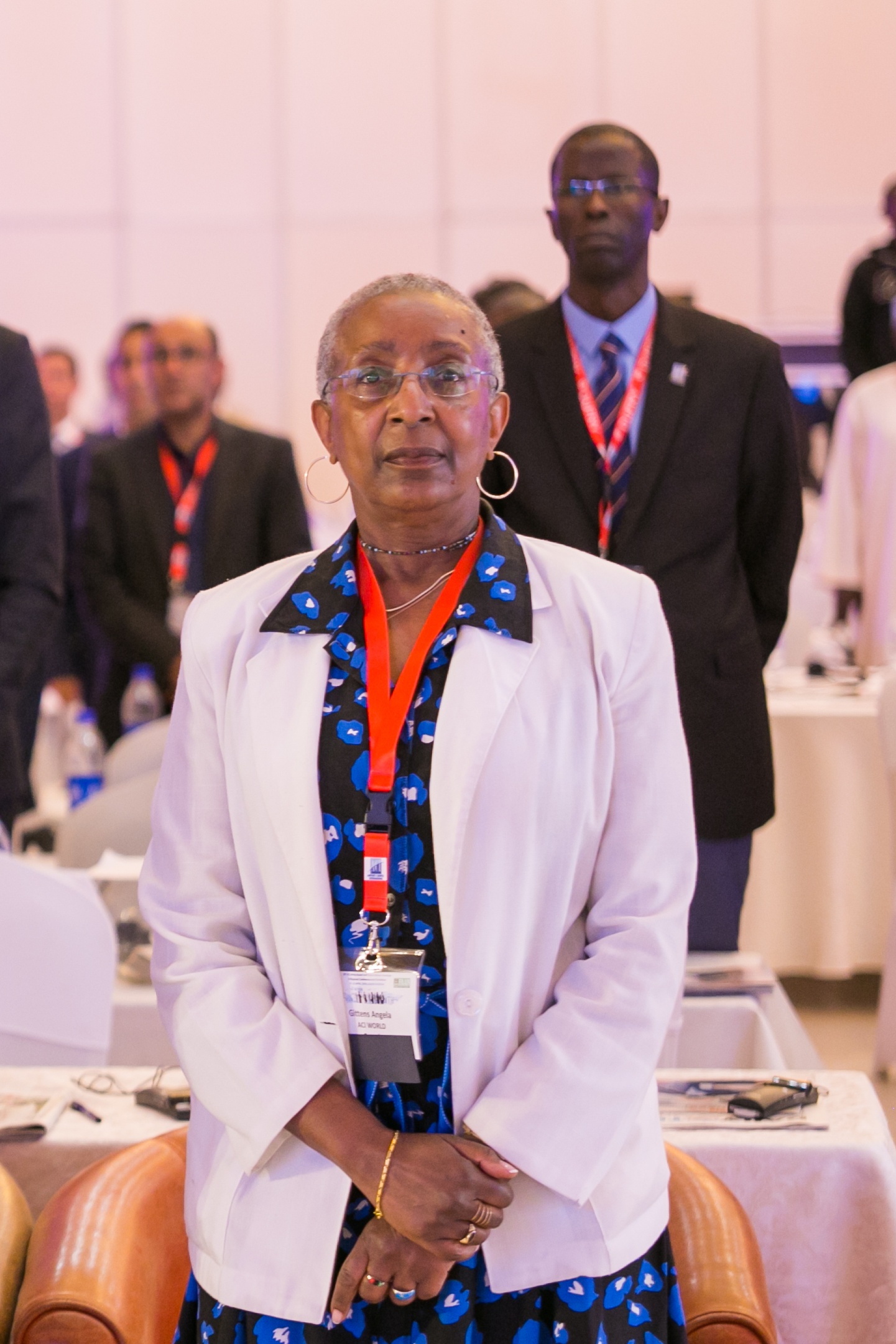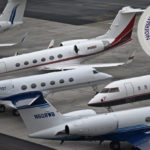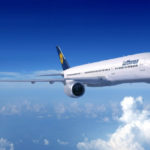
The Director General of Airport Council International, World, Angela Gittens, who spoke at the ACI Africa Conference in Lagos, reasons that Nigeria does not need a national carrier because it has all the criteria to create a competitive and more efficient airline industry. Excerpts:
The International Air Transport Association (IATA) Director General is circumspect about airport concession in Africa. He once said IATA is not fully in support of the concession because African government tend to give it to the highest bidder not necessarily the organisation that can effectively manage and provide facilitation without prioritising what it is taking out of it. I don’t know whether ACI shares that view?
Well, ACI doesn’t have a position on concessions in general; that is the government decision. It is up to the government to decide how to manage and designate airports, but I do know that with the growth in traffic, there is the need for airport infrastructure to accommodate that growth. This is because if you don’t accommodate that growth you will strangle your economy. And so many countries, particularly in Africa have a lot of other priorities. You have schools, hospitals, roads and these things are also important and one area where you can get private capital is in airports. And so they look to getting private capital for their airports so they can both get investment and infrastructure and also get professional management without the kind of political micromanagement that often comes when government runs the entity. That is just the nature of the beat and so they are trying to accomplish both things to get investment as well as to get management without having to be encumbered on a day to day basis by political interference.
What is your evaluation of what has happened already in terms of the few airports that have been concession in Africa?
There really haven’t been that many and I am not sure, the one I can think of is Abidjan and if you look at their record, they do very well in that area. The airport service is quality, so their customers think that they are doing a good job. They are in the airport carbon accreditation programme, so they are being internally or environmentally responsible. So it sounds to me that this is very successful. Not that there are many others but the few there have seem to me as successful.
Can you recommend the South African system where government cedes the power of airport management to a body while it is still government owned?
We call that corporatisation and that can work in other places. North America, for example has that system in many of its airports. It works as long as the government truly allows it to be independent. It is the decision that the government makes or fails to make and so you do have sometimes a cyclical swing where for a while it is independent and it runs as a true business, as a true service to the traveling public and the community. But then you have these swings where the government interferes and it tends not to go well.
The International Civil Aviation Organisation (ICAO) Council President was talking about expanding, modernising airport facilities to meet passenger surge in the near future in Africa, what effort do you think ACI is making to enhance this possibility in conjunction with the government?
Well, for example this conference right here where we are talking about the need for business transformation in African airports is part of such effort. No matter who operates the airport, whether it is the public sector or private sector operating the airport; they must be run as commercial enterprises. Yes, they are a service to the community, to the country and the consumer-the traveling public. But they need to be commercial enterprises and they need to try to maximise their non-aeronautical revenue. It is what you get from discretionary activities, from passengers or other users. Aeronautical is what you get from airlines and with the competition among airports many airports find that they can’t charge the full cost of providing the service to the airlines because the airlines will insist on getting discount or incentives or they go to the government and say you need to lower the charges or not raise the charges. But the charges are based on the cost, so if you don’t charge the full cost where is the money going to come from? You still have the cost, if you build a terminal or a runway you have to pay for that. And whether you have enough traffic or not you still have to pay for it. You could lower your charges but you still have to pay for what you have built. And you can build facilities for an airline business model and then the airline changes this business model or goes to another airport where it can make more money. You still have to pay for everything that you supplied. So it is important for airports to diversify their revenue sources because things happen that the airport has no control over.
Non-aeronautical is still underdeveloped in Africa, is there anyway ACI can make government understand that if you burden the aeronautical charges it will draw fewer airlines and fewer passengers to the airport?
Well, I will look at it the other way round; I will say it is best to increase non-aeronautical revenue so you have more diversification in case something goes wrong. Because you can’t always depend on aeronautical revenue because the airlines can change their mind and you don’t have complete control over how much you could charge. In any case, it is only cost recovery so the best you can do is cost recovery, whereas with non-aeronautical revenue you can make a profit.
Do you think the Single African Air Transport Market (SAATM) which has recently been ratified and endorsed by 23 countries in Africa will succeed in liberalising Africa’s skies, as many countries in the region are trying to protect their own airspace?
I think that is one of the problems Africa has. I think that is why Africa’s air transportation industry has not grown as much as it has in other regions because of the lack of liberalisation. If everyone holds back then you can’t get around in the continent and that is what has happened. It is starting to open up a little bit but if you look, we have conference in Africa all the time, so how do people get to a conference in Africa from Africa? They have to go to Europe or to the Middle East; that is crazy. You have some major centres in Africa that could provide more service to more cities. As I said, it is starting to happen; I think that has been a huge problem, everyone trying to protect their own national carrier.
We saw this in other countries or regions, we have seen it in Europe, North America, we have seen it in Asia Pacific, as they liberalise then they get better connectivity. Now it is difficult because the first thing that happens is that your national carrier gets into trouble because typically the national carrier is very inefficient because of the government subsidy and so it is more subject to governmental types of economics and not the market, they haven’t been exposed to the market. So when they do suddenly get exposed to the market sometimes they fail. And that is very difficult for a political leader to accept the failure of its national carrier. There is loss of identity for the country but in the long run, they are better off because they get more connectivity because you get other airlines coming in to try to compete with this airline that is subsidised.
When this is done true market forces can start and if you have a decent market, your market is really determined by other things not your airline, your market is determined by the magnetics of your destination, the economy of your country, the percent of the middle class that you have in your country that can travel, whether you have a strong Diaspora, because visiting friends and relatives is very strong reason for travel. So there are all kinds of magnetics within your country and that is what you have to look at. You have to look pass your national carrier and if you have strong magnetics, frankly you don’t need a national carrier. Now if you don’t have strong magnetics then maybe you do need a national carrier, maybe no one else will serve the country then you have to work on getting those magnetics. In Nigeria you don’t need that, I mean it has a huge population, a big middle class, very strong economy, you have all kinds of magnetics, you have the Diaspora, all the things I was just talking about, Nigeria has so you don’t need a national carrier. Or if you do have a national carrier you don’t need to subsidise it, allow the competition. Don’t try to protect it, let it survive or fail in the market. Because if it is subjected to market forces then it will work on its management, it will work on its core structure, it may do quite well. A lot of national carriers do quite well.
IATA has been carrying campaign in Africa for some time about connectivity, they put figures of what Africa will gain if there is intra African trade and if there is high connectivity and they see African government as seeing aviation as elitist. I don’t know how far ACI is collaborating with ICAO, IATA, to drum the importance of air travel to the various governments in Africa?

Well, we work with ICAO and other industry organisations on the economic benefits on analysing it, and reporting on the economic benefits of aviation. We work with ICAO. ICAO came out with a document right at the end of last year on the economic benefits of aviation. We are also in an association called the Air Transport Action Group (ATAG), which also produces a report on the economic benefits on aviation. So ICAO did in 2017, ATAG did in 2016 and we will do it again in 2018. So we keep up to date and we publish that, strictly with the help of ICAO, we make sure all governments have it so that they can understand what air transportation does for them and how connectivity helps their economy.
One of the retards in African airport development is training, having the right personnel, the managing director of the Federal Airports Authority of Nigeria (FAAN) was talking about collaboration with ACI to develop skills, how far has this gone?
Yes, we have an extensive training programme. We have several airports in Africa that are training centres so that their own staff can stay home and get trained but they can also accommodate staff from other airports in other countries. We also have what we call Airport Excellence Programme and safety and Airport Excellence Programme (APEX) and security and the two major airports in Nigeria have already had APEX and safety reviews and they have gone to become certified. The likes of Lagos and Abuja airports have become certified and we are about to do two more, Port Harcourt and Kano. And we are going to be doing APEX and security as well. They are also joining the Airport Service Quality (ASQ), programme which tests their customers’ perceptions of the service, the satisfaction of the services that they are getting and that really is going to help improve the airports because when the customers speak, you understand what the customer cares about and what the customer thinks of the service you are providing. Then that helps you determine the priorities on what you need to do to change. So between training, improvement on safety, improvement on security and improvement in customer service, it is going to go a long way to improving Nigerian airports.
Talking about security and with the threat of terrorism, how do you evaluate security and safety in African airports?
Well, we have an airport excellence and security programme and when an airport asks us, we assemble our team of experts from around the world and we come in and we look at best practices from ACI best practice. We look at compliance with ICAO Annex 17 to see how they are doing. Security is different from safety in that with safety the risk, the threat sits there till you come along and do something about it. Security is always changing, because there are bad guys always looking for new ways to disrupt things. So as soon as you close one avenue they look for another avenue. So it is never over, you always have to keep using intelligence, which is why it is very important for government to talk to each other and for government to share information with the industry. They don’t always have to say exactly what the threat is or how they know about it but they do need to say what has to be protected against. Let the industry which is actually providing the services help them mitigate that threat. If this is not done you are not going to have an industry. Your industry has to be safe and has to be secured but it also has to be doable, so people have to be actually get to the airport and get on airplane and so if you make that too difficult you are also stifling the economy just as much as if you had the actual incident. So the industry and government really need to work hand in hand to make sure it is secure, safe and make sure that the passengers and the airplanes and the cars can get through.
How do you see aviation as a tool for development in Africa? Do you think governments recognise the importance of aviation in the continent?
Some do; some don’t. I think you can see which government sees it as important and which government doesn’t. The fastest growing economies in Africa tend to be those where the governments understand the importance of aviation. So they can get their goods to the market, so that they can protect their population because you need air transportation whether it is health or intellectual like technology all of that is facilitated with aviation. In much of Africa, there is going to be leap frogging. In the Western world you had roads, and then car and then aviation. Africa is going to leap frog on some of that because it is developing when aviation is here.
So it can use aviation in the way other parts of the world used roads at first. It is like using mobile phones instead of trying to put in lined infrastructure. You don’t need it because now you have the mobile phone, so you just bypass that whole generation. And it is the same thing with aviation, so I think that aviation is growing because this is a big, big continent, you have big countries and the world is global now so you have to connect not only within Africa but you have to connect outside of Africa and you can only do that with aviation.
Do you think the Nigerian government is supporting airport improvement in Nigeria and what would you expect, looking at the potential that we have; our population? What would you expect when you come to our airports, especially the major airports that we have?
I think what the government is doing, looking to corporatise, privatise; to get the investment in its airport sector is telling us that they do see aviation as important. I think FAAN does a very good job of managing the airport sector and trying to get the improvement, the staff improvement as well as the infrastructure, the training; the management, getting certified, those are very important steps. And if they move ahead with the use of the corporatisation for the privatisation that will bring in more investment, that will bring a faster way in getting professional management and get the training going.
THISDAY






